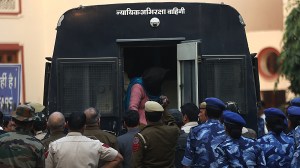First artificial heart recipient Peter Houghton, 68, dies
Peter Houghton, the world’s longest-surviving recipient of an artificial heart, died on November 25...

Peter Houghton, the world’s longest-surviving recipient of an artificial heart, died on November 25 at a hospital in his home city of Birmingham, England. He was 68. The cause of death was multiple organ failure, but physicians had to disconnect the battery on the artificial heart before he could be declared dead.
Houghton received the Jarvik 2000 artificial heart in June 2000, three years after he had suffered a massive heart attack caused by the viral flu. The pump was implanted by Dr Stephen Westaby at John Radcliffe Hospital in Oxford — the first time the pump developed by Dr Robert Jarvik had been tested in a human.
Westaby said the other six patients in whom the pump had been implanted had not survived nearly as long as Houghton.
The Jarvik pump is designed to support the body’s blood circulation until a donor heart becomes available for a transplant, but Houghton’s age and medical condition ruled him out as a transplant recipient.
At the time of the surgery, his heart had deteriorated until it had only 10 per cent of normal function, he was barely able to walk and doctors gave him only a few weeks to live.
Two weeks after the surgery, he went for a two-mile walk.
He was active in charity work during the seven extra years of life he received, participating in a 90-mile charity walk, hiking the Alps, traveling to support heart research, writing two books and raising millions of dollars for other victims of heart attacks.
The Jarvik device is a small turbine pump, about the size of a man’s thumb, that is implanted next to the heart’s left ventricle to help circulate blood. A thin wire runs up the chest and out of the head behind the ear so that the device’s battery pack can be attached. Although Houghton suffered several infections in the battery receptacle, the head is considered a safer and more hygienic spot for it. The battery pack was carried in a camera case slung over his shoulder.
The surgery had one unexpected benefit: By easing the workload on Houghton’s heart, it permitted the heart to recuperate partially. In the past year, his heart had returned to about 30 percent of normal function, allowing him to be off the device for brief periods, as when changing the batteries.
That became important when a thief tried to grab the camera case while Houghton was shopping in London. When the battery was disconnected, a loud alarm went off, startling the thief and causing him to drop the case. Houghton had the presence of mind to reconnect the device.
Houghton is survived by his wife Diane. The pair had no biological children but had served as foster parents to 11 children.



- 01
- 02
- 03
- 04
- 05




























